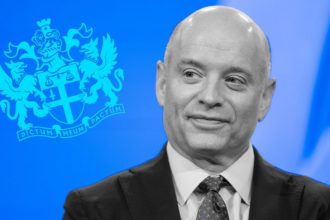Most former college students who still owe money on their student loans are settling into a new normal: after a pause of more than three years, student loan payments are due once again this month.
The optimistic but pragmatic members of the Class of 2024 are already thinking about how they’ll pay down their loans when they graduate. In the latest Handshake Network Trends report, they made it clear that one of their top priorities is charting a path to financial security. That’s because 56% of them expect to graduate with student loan debt that, if history is any guide, will average somewhere around $29,000. More than two-thirds of these current college seniors say those loan payments will influence the jobs and careers they’ll consider.
Fortunately, student loan assistance is emerging as an employer benefit for organizations looking to relieve some of the pressure on the Generation Z talent they’re hiring. Only about 8% of companies offer such a benefit. But over the past four years, the share of job descriptions on the Handshake platform that mention student loan assistance has more than doubled.
Companies have a range of options here. Fidelity Investments, for instance, offers stipends of as much as $179 monthly to apply toward their student loans up to a maximum of $15,000. Companies such as Abbott, Boeing and Travelers contribute to an employee’s 401(k) plan based on their student loan payments so employees don’t have to choose between repaying their college debt and saving for retirement. (A new federal law that takes effect next year will make it easier for companies to match an employee’s student loan payment with a retirement fund contribution.) Still other companies, such as Vanguard, offer student loan counseling and guidance that can help employees better manage their payments and pay off their loans faster.
Helping early-talent hires manage this loan burden can be a winning strategy for employers looking to differentiate themselves and become one of the best investments they can make in early talent. Here’s why:
It gives a recruiting advantage to companies, especially those seeking more diverse talent. A significant share of the Class of 2024 is already planning career paths that can help them deal with their student debt. Nearly 70% of college seniors say the student debt they’re carrying will influence the jobs they’ll consider upon graduation. I’m also hearing from students that they would be more willing to apply to companies that offer student loan payment benefits.
Because student debt is more likely to burden women, Black and first-generation students, offering debt relief assistance can also help employers seeking to diversify their talent pools, as well as support and retain current employees.
It can help with retention and commitment. Early talent might be more willing to stay on the job longer if they get some employer assistance with their student debt, even if it’s indirect. A 2023 survey by investment firm Voya Financial found that 63% of working Americans still paying off their student loans said they’d be more likely to stick with their current company if they are provided guidance, tools and other assistance to reach their retirement goals.
Megan Bourque, who leads benefits at Fidelity Investments, recently explained the company’s program supports the retention of early career employees. At Travelers, company leaders say the retirement matching program is extremely popular among its newest early-talent hires.
It can take some of the financial pressure off of early talent. Achieving financial stability is a top priority for recent and upcoming college grads, and getting some help with repaying their student loans is a big piece of this. Our latest report found that 77% of the Class of 2024 will be more likely to apply to companies that offer job stability. Moreover, a third of current college seniors say that after they graduate they expect to do gig or freelance work on top of their full-time jobs. The reason? They’re worried they won’t have enough income to cover rent, living expenses and student loan payments. Companies that can help early talent with their student loans might be able to keep employees from having to divide their time.
Here’s another factor to consider: Student loan debt causes additional stress, which for many can lead to mental health struggles. Generation Z prioritizes we
llness, work-life balance and bringing their whole self to work. As this new generation enters the workforce, companies should keep in mind that financial well-being is a key component of overall well-being.
After a three-year hiatus, student loan debt once again will loom large in the lives of upcoming and recent college graduates. Companies that ignore this reality risk missing out on top early talent.
Read the full article here





